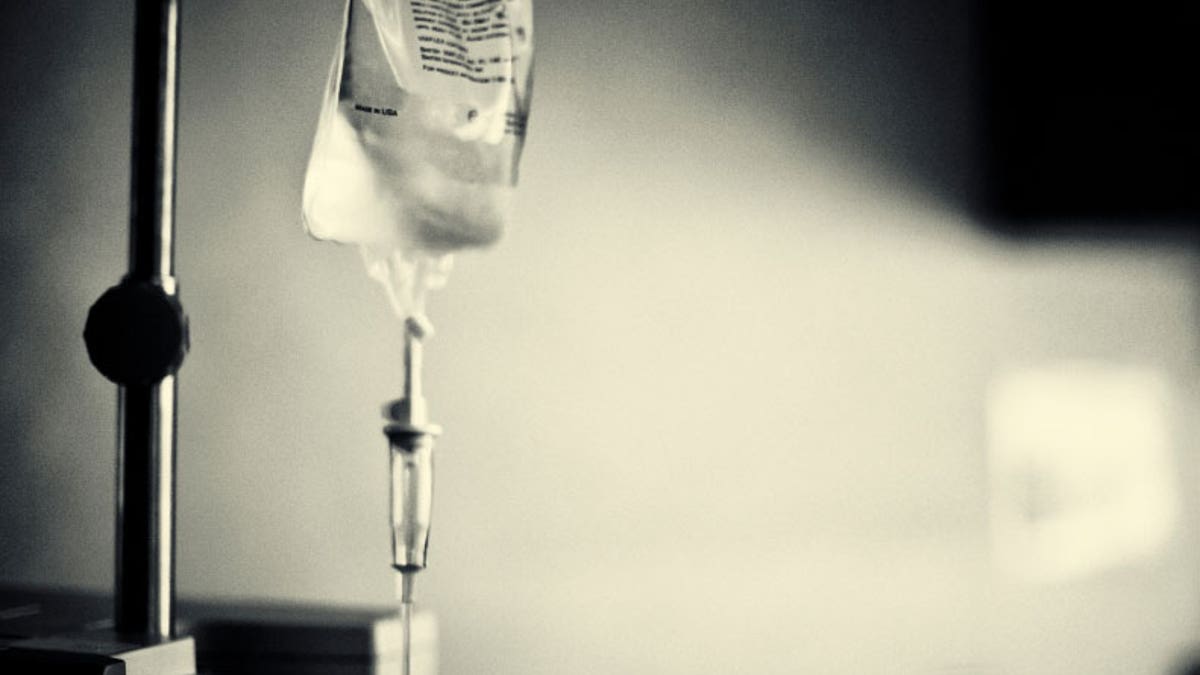
(Marilyn Nieves)
Teens with dying parents don't benefit as much from hospice services as older members of the family do, a new study suggests.
The needs of teenagers with parents in hospice are often not met or even assessed, the study found - even though the hospices take a team approach to care delivery that's designed to manage the physical, psychosocial and spiritual concerns of dying patients and their families.
Most of the surveyed adolescents with a parent in hospice had zero or limited contact with staff, researchers reported in the Journal of Hospice and Palliative Nursing.
"In hospice, the unit of care is to the patient and family, but kids are being overlooked," said study author M. Murray Mayo of Ursuline College's Breen School of Nursing in Pepper Pike, Ohio.
Mayo's team interviewed 30 adolescents between the ages of 12 and 18, living in the midwest U.S., who had a parent receiving hospice care. The team asked open-ended questions about how the youngsters learned their parent was dying and how they navigated the stress with ongoing responsibilities inside and outside of school. Twelve teens reported they had no interaction at all with hospice staff. Timing of providers' visits was largely to blame.
"Hospice visits happen between 8:00 a.m. and 4:30 p.m., and kids aren't there," Mayo said. "Efforts need to be made on the kids' time to say 'we're here for you, too.'"
Seven of the children reported "in-passing interaction" - brief contact that lacked meaningful support.
For example, a 16-year-old boy whose mother was dying of cancer told researchers: "Um yeah, we talked about a few things, they said a few questions to me, I mean, I don't know what they said, but we had a few (words exchanged)."
A 12 year-old boy whose father was a hospice inpatient said: "I was really curious, like everyone was. I asked the nurse how much time he had, and I got really mad because the nurse only said, 'Maybe if he is lucky, three weeks.'" The teen did not know how close his father was to death; he died six days later.
Six reported "engaged interaction" with positive, ongoing contact with at least one hospice staff member.
Six had "formal interactions;" they were referred to professionals, such as bereavement counselors or art therapists.
Adolescents "are willing to talk, and they have something to say," Mayo said, pointing out that teens' willingness to participate in this study is instructive to providers.
Outreach before a parent's death, experts say, can have long-term benefits. "A little prevention could go a long way to decreasing post-death suffering for these kids," said co-author Denice Kopchak Sheehan of Kent State University.
Several studies suggest that the death of a parent during adolescence can result in psychological issues that stretch into adulthood, including depression, self-injury and post-traumatic stress.
"No healthcare or social service professional ever talked with me when I was 15 and my father was dying of brain cancer," said Barry J. Jacobs, a psychologist and co-author of the newly-released AARP Meditations for Caregivers. "I didn't have any guidance for grieving my father's death, and this had long-term detrimental consequences for my emotional development. Teens need the outreach efforts of hospice programs."
At JourneyCare, the largest hospice provider in Illinois, social workers attempt to talk to all of a patient's children- no matter what age. Mary Ann Green, a JourneyCare project director and licensed counselor, stresses that normalizing the experience of illness and death is crucial for teens at an age when "fitting in" is a priority.
"Being able to be truthful and say that we can't fix it is very empowering to a teen, because we can sit there in the pain with them," Green said. "It's about listening, giving them the opportunity to share what they are feeling and validating their feelings. They want someone to understand that it's painful, it's frightening, and it feels out of control."
JourneyCare social workers find success connecting with teens through "legacy making": making a scrapbook together, encouraging letter writing, or producing a video or a song.
When teens of the dying find meaningful support and ways to channel their frustration, fear and sadness, Green says that they find resiliency unmatched among their peers. "They are way beyond their years in things they have to do and things they have to burden."
SOURCE: http://bit.ly/2btAAsq Journal of Hospice and Palliative Nursing, August 2016.
